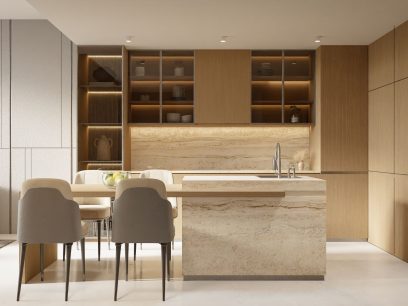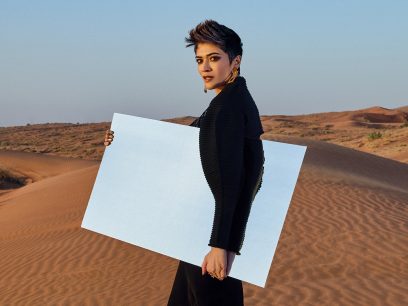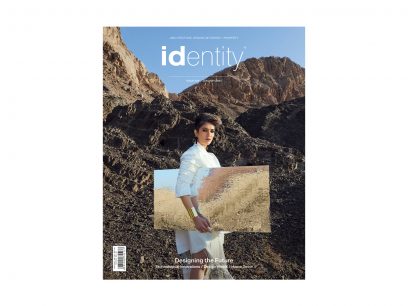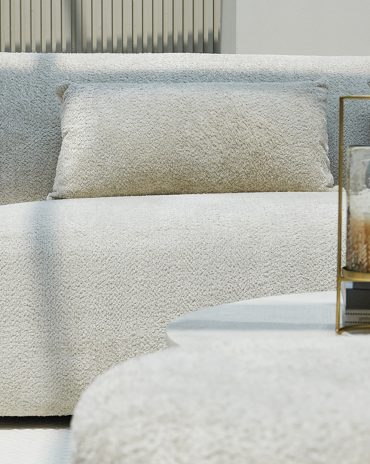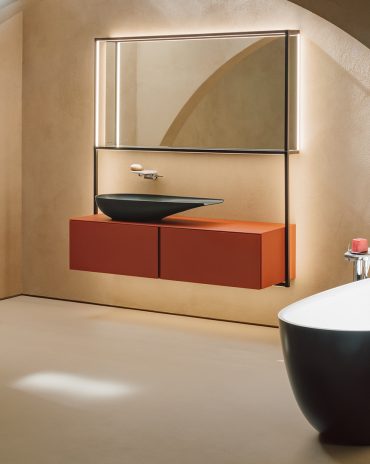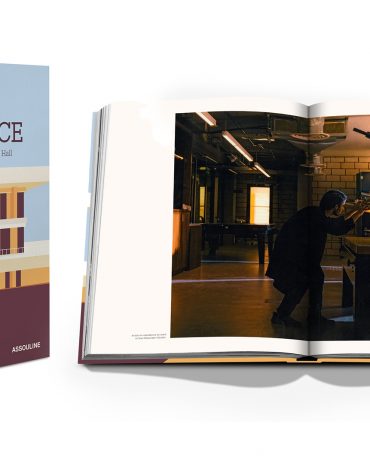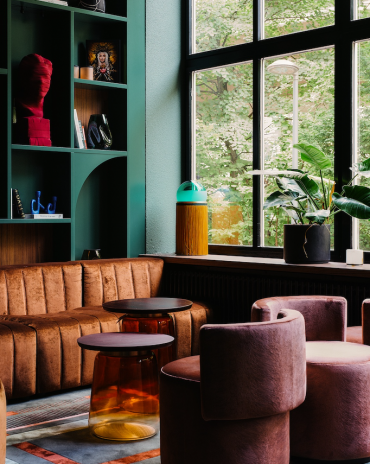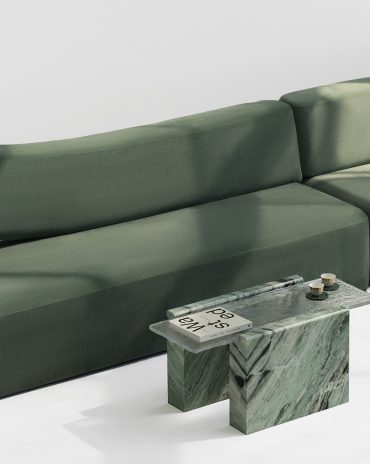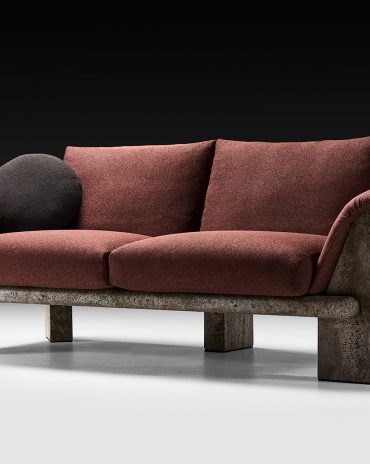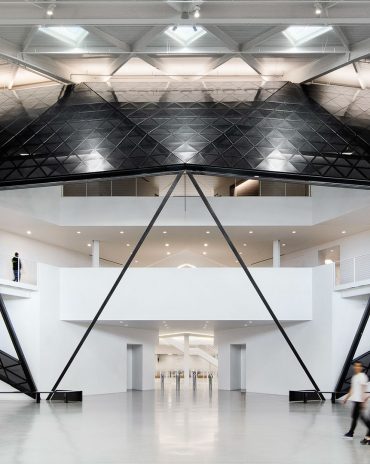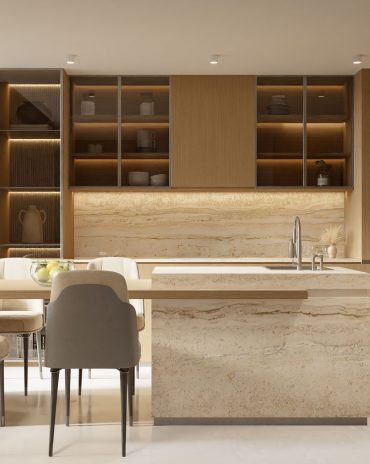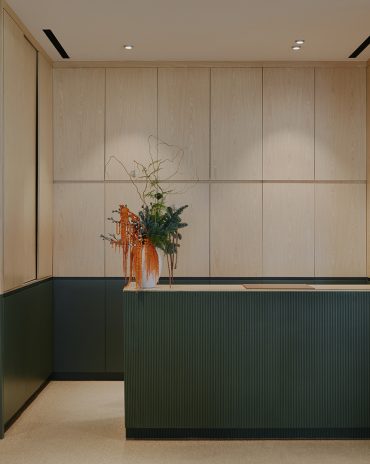Copyright © 2025 Motivate Media Group. All rights reserved.
Loewe’s exhibition for Milan Design Week puts the spotlight on the simple chair
The exhibition 'Loewe Chairs' turns a seemingly mundane objects into a collectible item
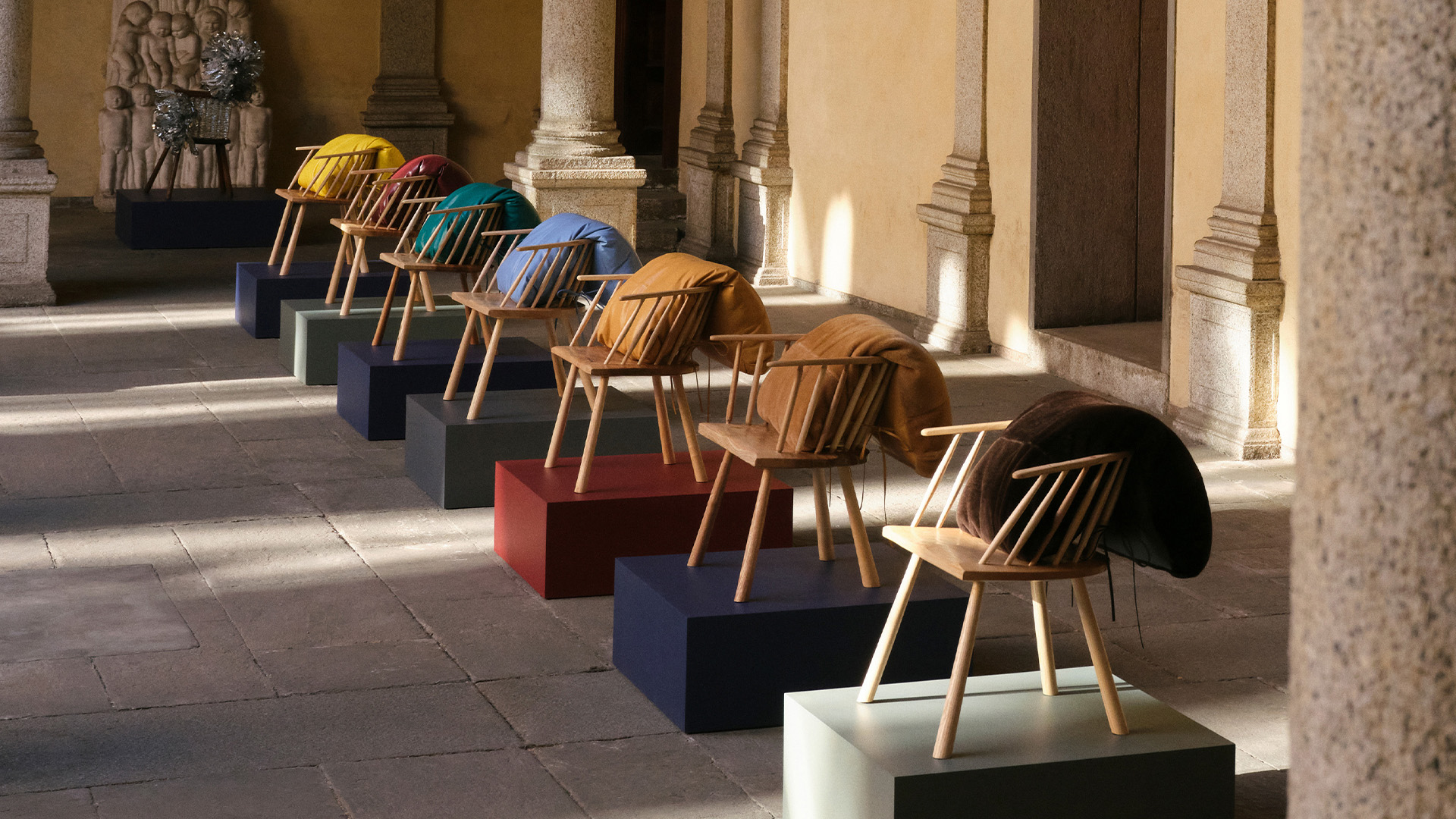
JW Anderson’s appreciation for craft is unquestionable – and has been ever more present since he was named creative director of Spanish fashion house Loewe over a decade ago, where he launched the Loewe Craft Prize in 2017, spotlighting the work of makers from diverse backgrounds and disciplines. Anderson’s grandfather was a textile designer and since visiting the factory with him in Northern Ireland, the designer became fascinated by the act of making. Anderson’s Loewe has extended far beyond fashion, and his craft-honing participation during Milan Design Week has proven that.
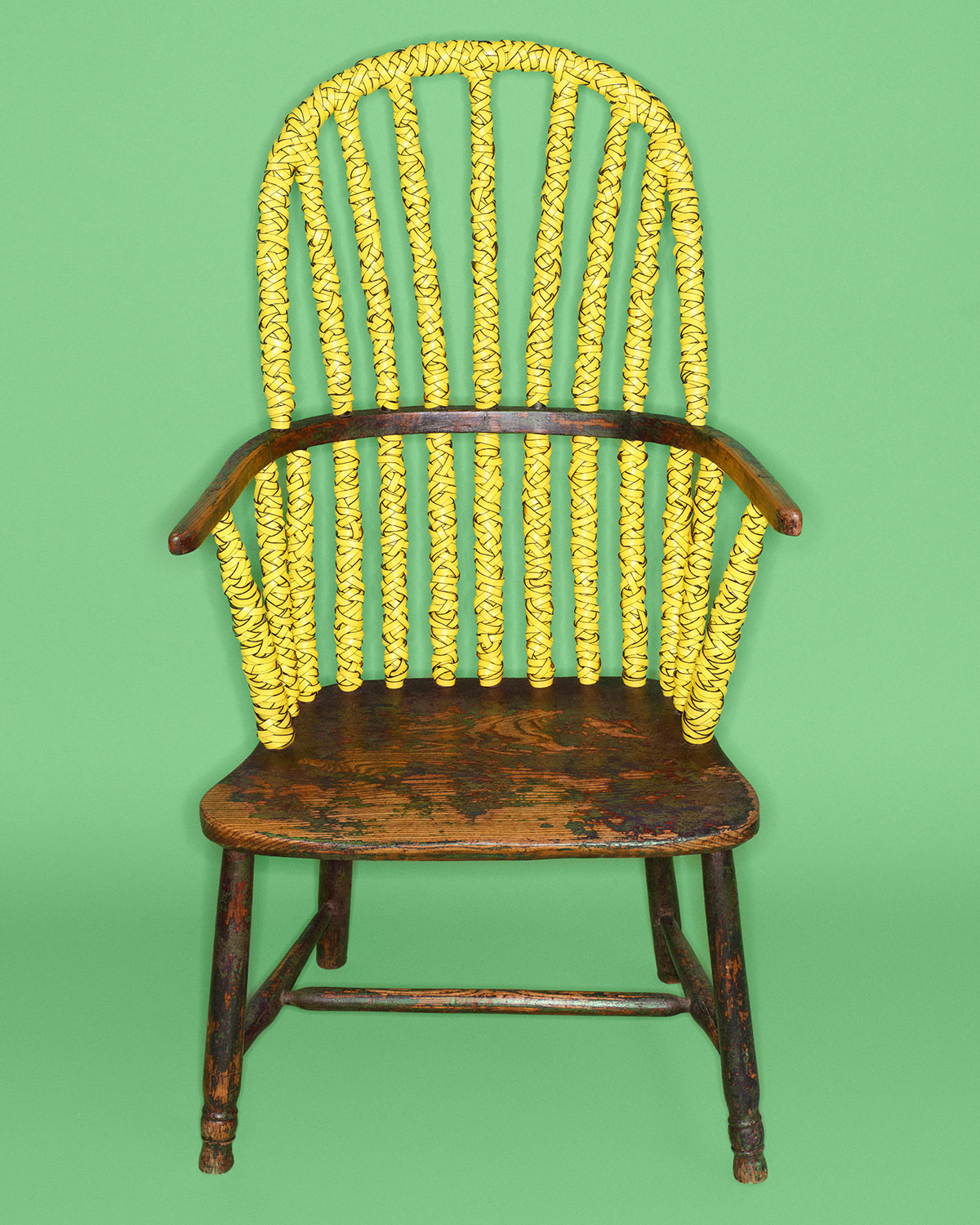
From exploring bamboo and various weaving techniques (including with leather, straw and paper), this year’s focus is on the wooden ‘stick chair’, a term which has been used to describe the apparent simplicity of the build and appearance of the domestic furniture item; one that has long been considered a ‘peasant item’, and not worth documenting.
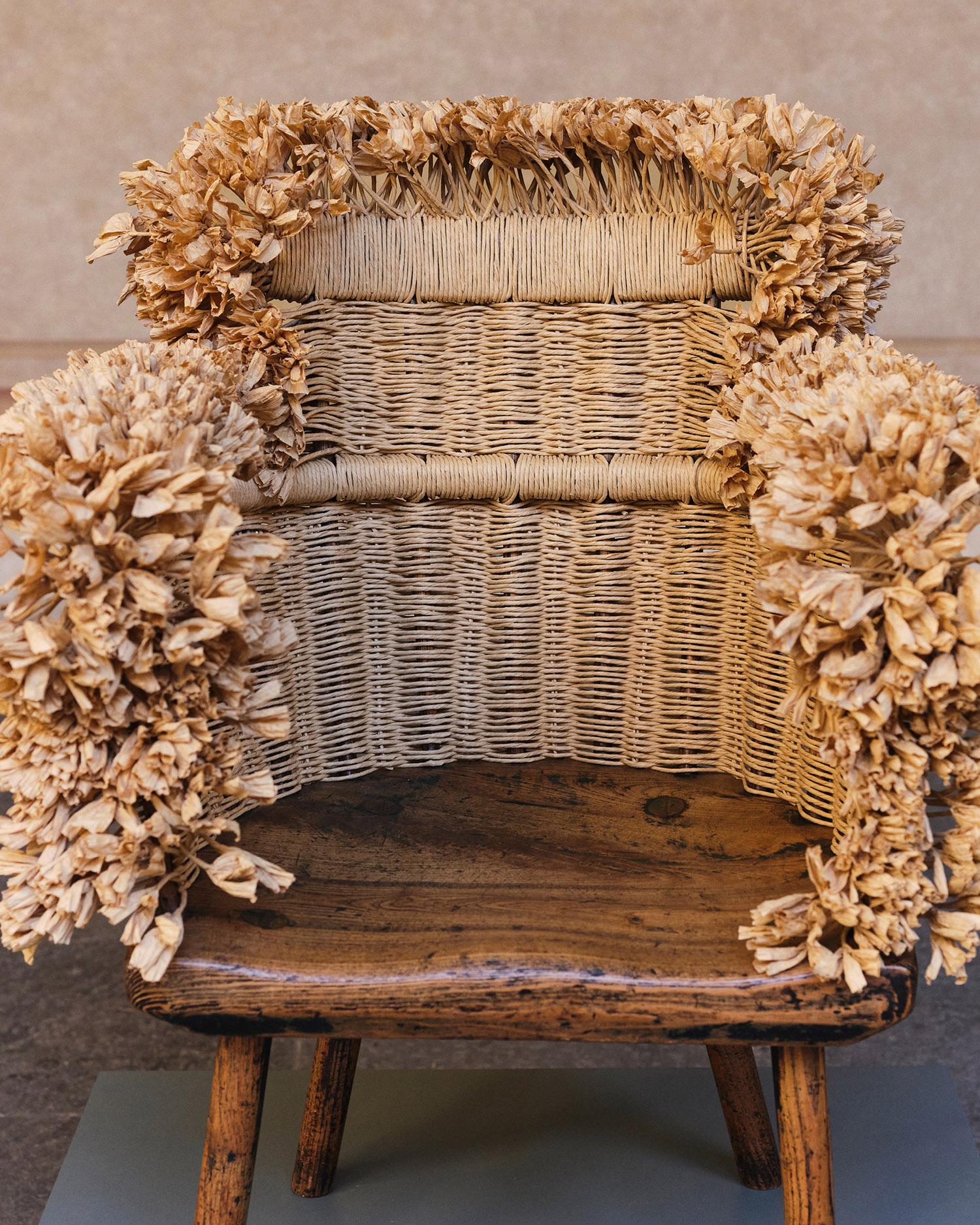
Of course, Anderson disagrees and instead has created an entire exhibition where the chair is the starting point, while highlighting the creative process of weaving and embellishment by skilled artisans from around the world that transforms a seemingly mundane piece of furniture into a collectible object. The humble stick chair thus becomes a springboard for unbridled woven decoration.
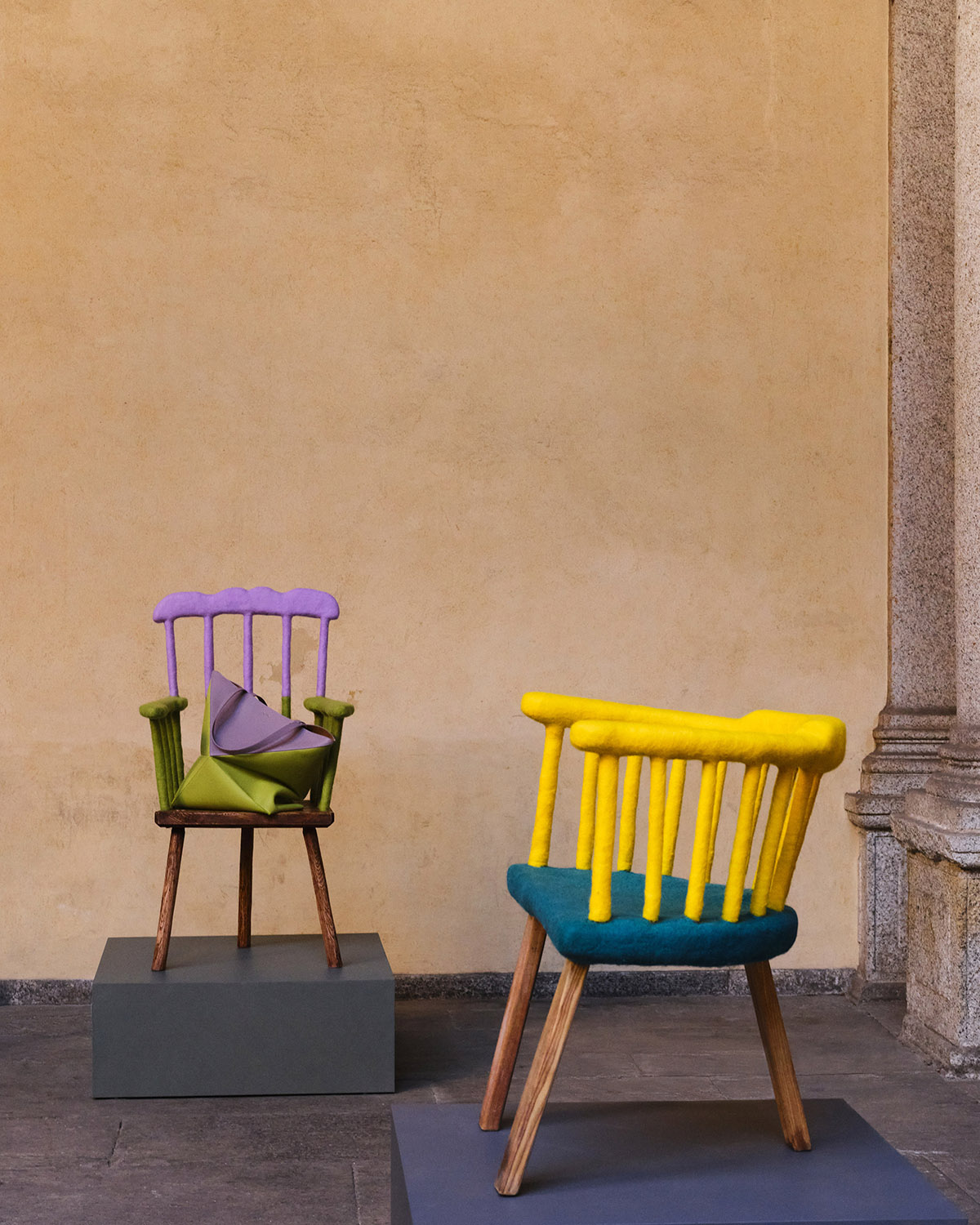
According to Loewe, the earliest records of the ‘stick chair’ can be traced back to the time of the 10th-century king Hywel Dda, and while the shapes and forms of the chairs can vary, what unites them is the method of construction, where all the uprights and legs are fixed into the seat and are typically held in place with a wedge.
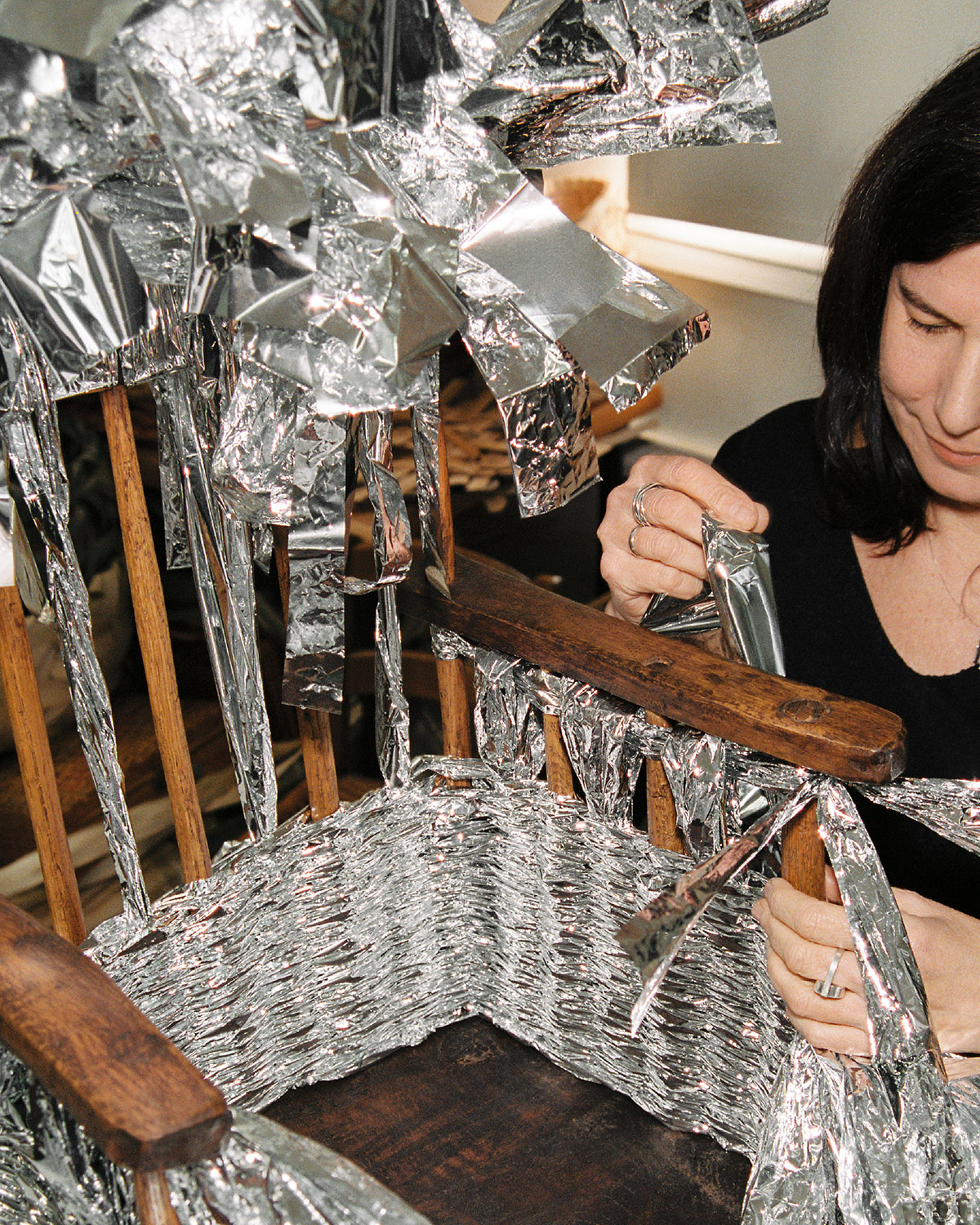
In total, thirty stick chairs have been embellished: twenty-two of these are original antiques, while the remainder have been newly crafted by a British atelier that specialises in this style of chairs. The other eight ‘Lloyd Loom’ chairs – honouring the technique of creating a durable woven texture of the same name – were created by Belgian company Vincent Sheppard.
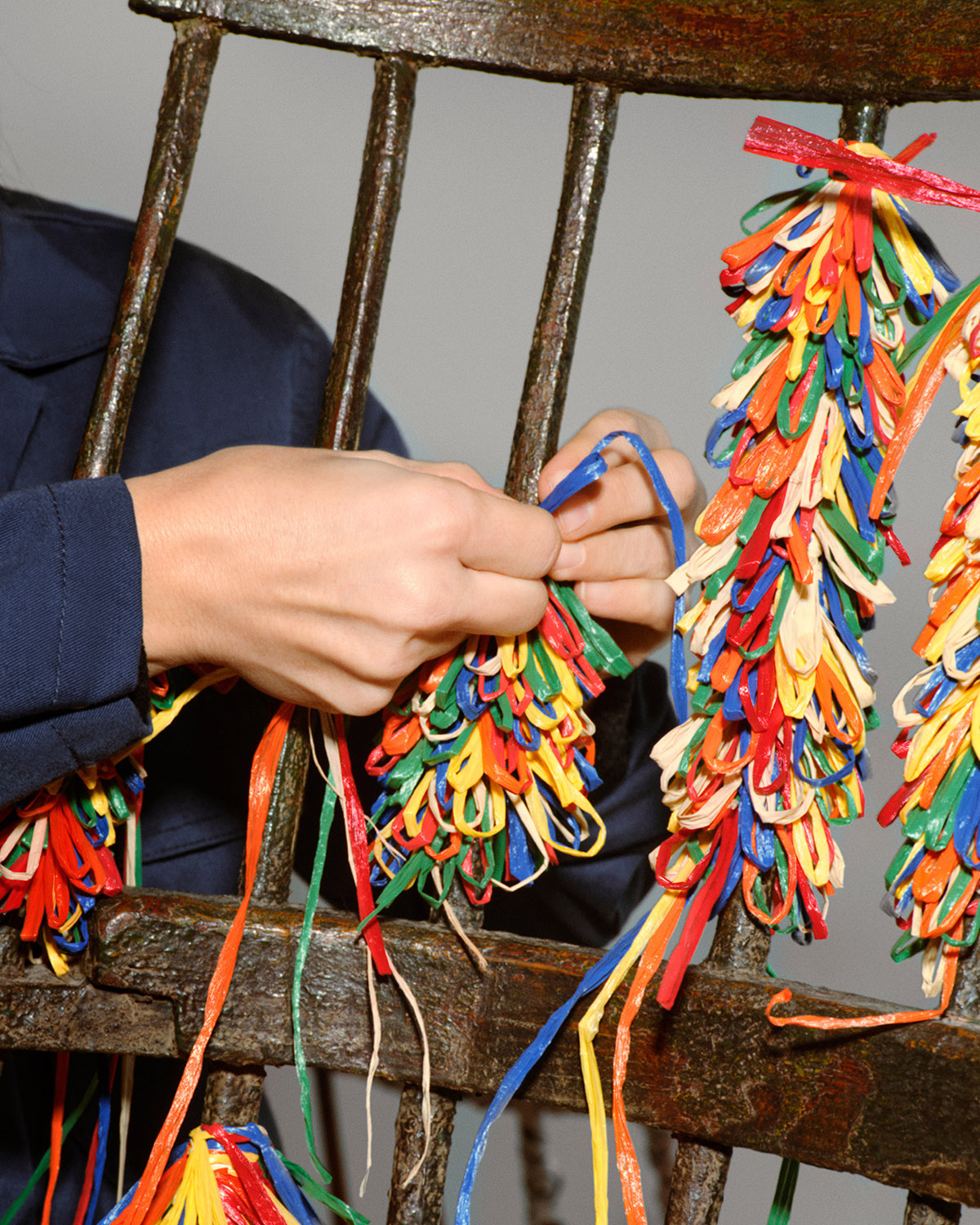
The myriad chairs featured in the exhibition spotlight various weaving techniques and an even wider assortment of materials; some of which, like leather and raffia, are familiar to the brand’s DNA, while others, such as the foil of thermal blankets, are unexpected additions. Additional materials include shearling and felt, giving the chairs a soft and tactile texture. The powerful use of colour is also surprising, emphasising the medley of colours and artistic interventions. In the end, each item becomes a creative dialogue between the artisans and their preferred medium and object.
The Latest
Textures That Transform
Aura Living’s AW24 collection showcases the elegance of contrast and harmony
Form Meets Function
Laufen prioritises design, functionality and sustainability in its latest collections
Preserving Culture, Inspiring Creativity
Discover the Legacy of a Saudi Art Space: Prince Faisal bin Fahd Arts Hall explores the Hall’s enduring influence on the cultural fabric of Saudi Arabia
Channelling the Dada Spirit
Free-spirited and creative, The Home Hotel in Zurich injects a sense of whimsy into a former paper factory
id Most Wanted- January 2025
Falaj Collection by Aljoud Lootah Design
Things to Covet in January
identity selects warm-toned furniture pieces and objets that align with Pantone’s colour of the year
Shaping the Future of Workspaces by MillerKnoll
Stacy Stewart, Regional Director Middle East & Africa of MillerKnoll discusses the future and evolution of design in workspaces with identity.
Shaping Urban Transformation
Gensler’s Design Forecast Report 2025 identifies the top global design trends that will impact the real estate and built environment this year
Unveiling Attainable Luxury
Kamdar Developments has launched 105 Residences, a new high-end development in Jumeirah Village Circle.
The Muse
Located in the heart of Jumeirah Garden City, formerly known as ‘New Satwa’, The Muse adds to the urban fabric of the area
Cultural Immersion Meets Refined Luxury
The Chedi Hegra opens its doors in AlUla’s UNESCO World Heritage Site
Redefining Coastal Luxury
Sunshine Bay on Al Marjan island combines seaside views, exceptional design, and world-class amenities to create a unique waterfront haven


